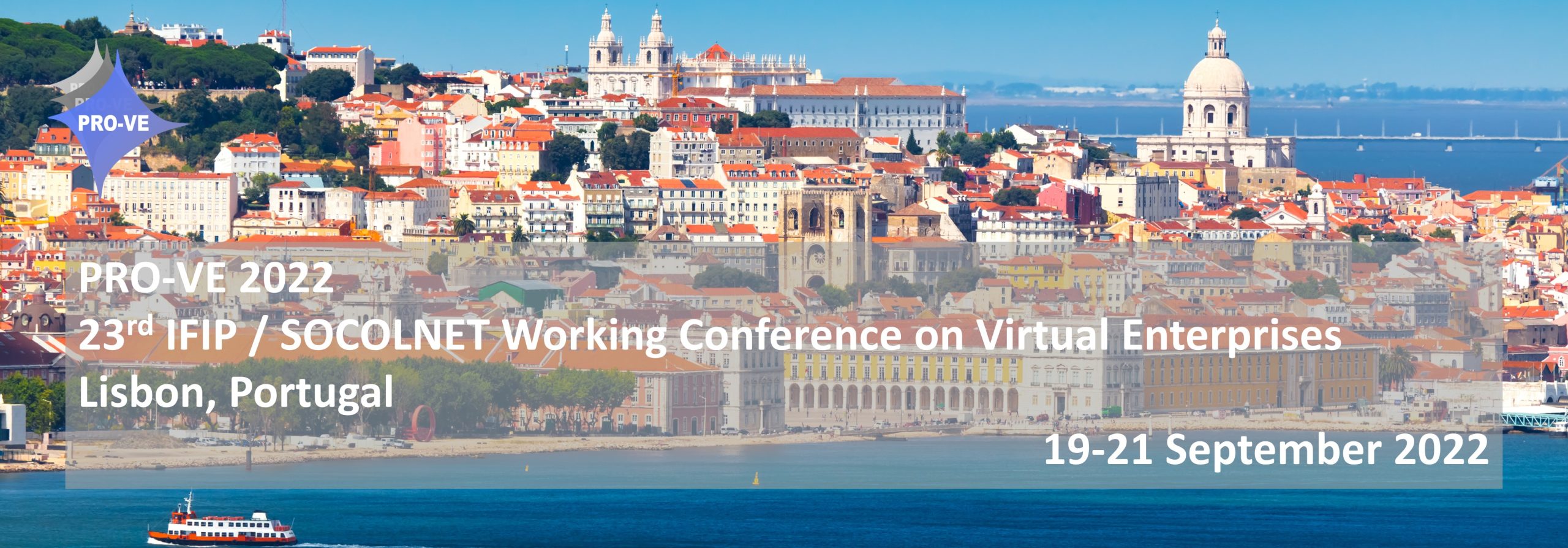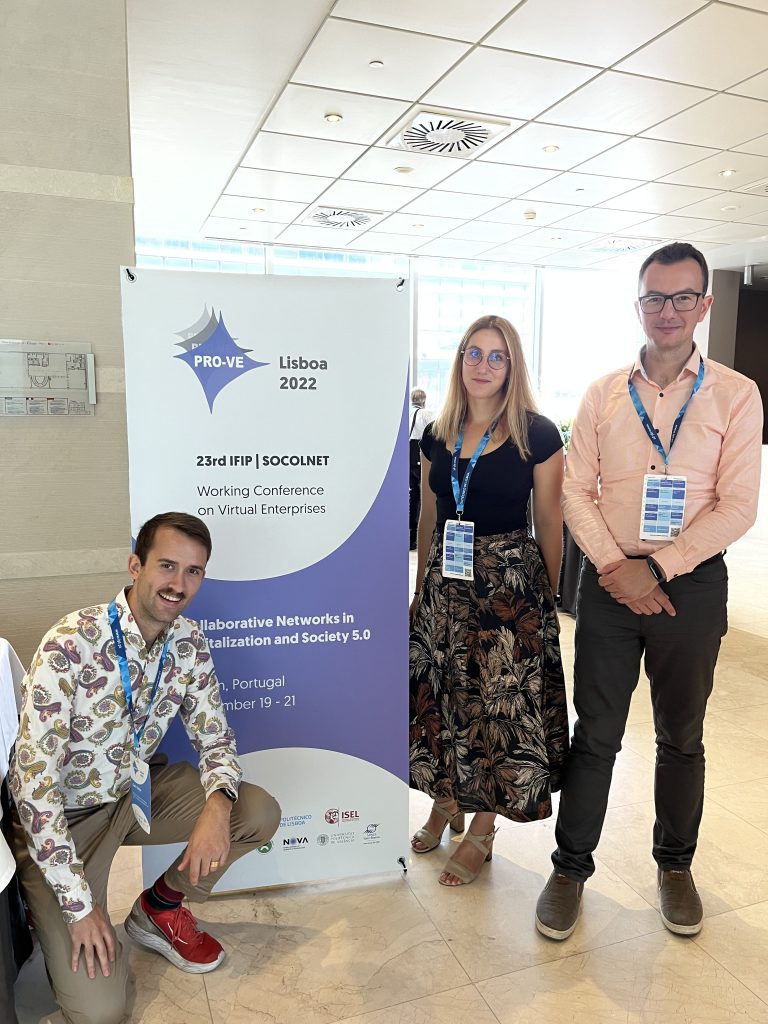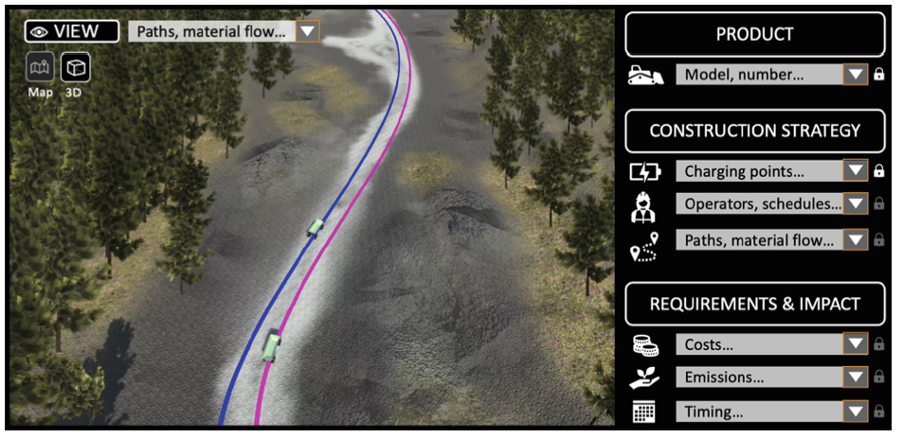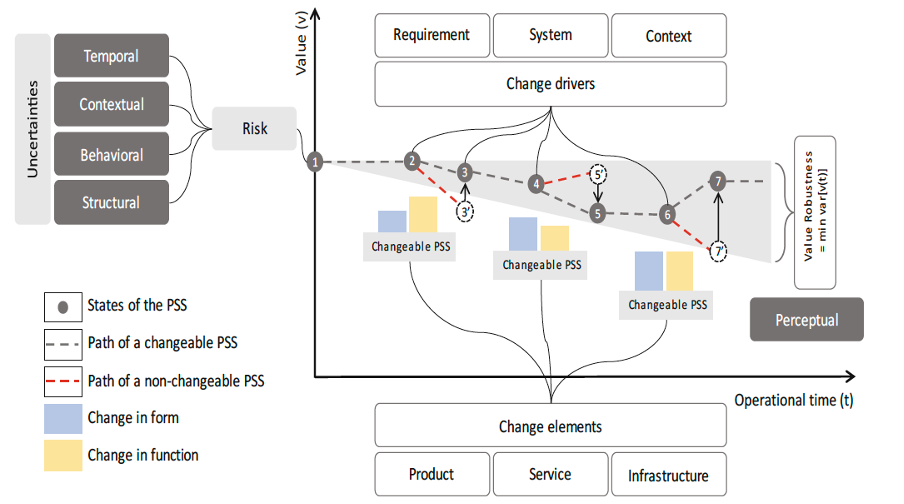
BTH PDRL at the 23rd IFIP/SOCOLNET Working Conference on Virtual Enterprises
- Post by: Alessandro Bertoni
- 27th September 2022
- No Comment
PDRL was finally back to physical conferences between the 19th and the 21st of September for the 23rd IFIP/SOCOLNET Working Conference on Virtual Enterprises with theme “Collaborative networks in the era of digitalisation and Society 5.0”, also known as Pro-Ve 2022.

Carl Toller, Giulia Wally Scurati and Alessandro Bertoni traveled to Lisbon to represent the research group. Four papers where presented in a special session of “Value Co-creation in ecosystems” jointly chaired by Prof. Tobias Larsson from PDRL, Professor Shaun West from Lucerne University and Professor Xavier Boucher from Mines Saint Etienne. Here is a snapshot of PDRL contribution at Pro-ve 2022.
“Boosting Value Co-creation in Design Through the Product-Service System Digital Twin: Questions to Be Answered” by Marco Bertoni

Abstract. Digital Twins (DTs) are among the most hyped technologies of the 2020 s. Yet, the research dealing with the use of DTs in early Product-Service Systems design remains insufficiently systematized. Based on the findings of multiple-case studies in the Swedish manufacturing industry, the objective of this paper is to collect and present a set of ‘questions that need to be answered’ to foster the development and utilization of DTs in the PSS realm. The results highlight how the DTs should be composed of several layers to boost value co-creation in design, in a way to incorporate the digital ‘counterpart’ for more abstract entities, from processes to human behaviors to more intangible assets.
Link: https://link.springer.com/chapter/10.1007/978-3-031-14844-6_47
“Value Co-creation in Data-Driven Product-Service Systems: An Industrial Perspective“ by Carl Nils Konrad Toller and Marco Bertoni
Abstract. Value co-creation is an important aspect for servitized companies operating a Product-Service System business. However, their relation to value cocreation might depend on where they are on the servitization journey. This paper described the result of a multiple-case study with three industrial partners and their perspectives on the challenges and opportunities with value co-creation for
data-driven Product-Service Systems.
Link: https://link.springer.com/chapter/10.1007/978-3-031-14844-6_48
“Boosting Value Co-creation in the Road Construction Industry Through Virtual Prototyping” by Giulia Wally Scurati, Alessandro Bertoni, and Marco Bertoni

Abstract. When construction companies move forward in their servitization journey, there is an increasing need to exploit digital tools and models to facilitate the complex and dynamic interactions between entrepreneurs, customers, equipment manufacturers, energy providers and more during the early stages of the construction project design. This paper presents the application Augmented Reality
(AR) and Virtual Reality (VR) applications to create distributed ‘experience environments’ for value co-creation in the road construction industry, where to foster participation of all the stakeholders in the needs identification process and the trade-off of the value drivers of the project. After presenting the modelling approach pursued in the work, the lessons learned gathered from preliminary verification activities are presented, pointing to future work in the field.
Link: https://link.springer.com/chapter/10.1007/978-3-031-14844-6_49
“Designing Value-Robust Product-Service Systems by Incorporating Changeability: A Reference Framework” by Raj Jiten Machchhar and Alessandro Bertoni

Abstract. When a Product-Service System (PSS) has a longer lifecycle, it is subjected to several internal and external changes along its path that may deteriorate its value. A PSS capable of delivering value despite the circumstances is called a value robust PSS, and one way of achieving value robustness is by incorporating changeability. A lot of uncertainties prevail in decision-making concerning changeability as change is a phenomenon not clearly understood in PSS design. To bridge this gap, this paper presents a reference framework to support the definition and quantification of changeability in PSS design to enable the delivery of a value robust PSS. The paper is mainly focused mainly on the realization of the concept of changeability in PSS design, crossing the boundary between rich literature in the field of PSS and Systems Engineering.
Link: https://link.springer.com/chapter/10.1007/978-3-031-14844-6_50
